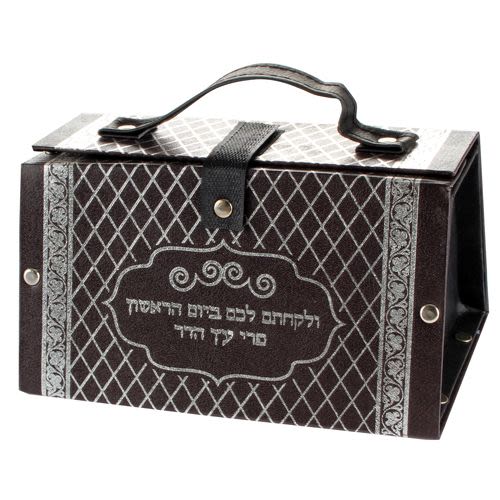
Tzav: Stealing From our Children
Every Friday night, following candle lighting, the “tzaddeket” would leave her five small children at home while she ran off to the synagogue to encounter the angels…

Parshat Tzav
WITH CLEAN HANDS
This week's parashah begins by describing the burnt offering, while the end of the previous parashah describes the guilt offering which a person must bring to atone for having denied that he stole. The most important condition upon which all the sacrifices depend, is hinted at in the juxtaposition between Parashat Vayikra and Parashat Tzav. The end of Parashat Vayikra proclaims: “Then it shall be, because he has sinned, and incurred guilt, that he shall restore that which he took violently away…” (Vayikra 5:23) Parashat Tzav begins: “This is the law of the burnt offering…” (Vayikra 6:2) The connection between the two sections teaches us that if you desire to bring an offering, do not steal anything from anyone. Why? “For I, Hashem love justice. I hate robbery with burnt offerings” (Yeshayahu 61:8). Even if you bring a burnt offering, I hate robbery. Midrash Tanchuma explains, “When will I accept the burnt offering which you bring? When you have cleaned your hands from robbery, as King David states: “Who shall ascend unto the mountain of G-d and who shall stand in his holy place? He that has clean hands and a pure heart” (Tehillim 24:3-4). This teaches us that honesty in monetary matters is an absolute condition for offering any sacrifice in the sanctuary. Our worship of G-d for all generations is defined by this lesson, even when we do not have a sanctuary. There can be neither sacrifice nor any kind of closeness to G-d, except when the deeds of our mundane life are purified from the smallest tinge of harming our neighbor. One cannot separate the two. Bringing up a sacrifice without adhering to upright and honest behavior is the kind of rite against which the prophets of Israel fought an eternal battle.
LIKE THE FIRST MAN
This principle is also hinted at in the beginning of the book of Vayikra, at the onset of the entire teaching about the sacrifices. “If any person of you offers an offering unto Hashem…” (Vayikra 1:2) The Hebrew word used to describe “any person” is “adam”. This is an exception from the usual usage of the word “ish.” Rashi therefore asks, “Why is this term for “a person” employed here? Since Adam also means the first man, its use suggests the following comparison: Just like the first man did not sacrifice anything acquired by way of robbery, since everything in the world belonged to him, so you too, shall not offer anything acquired by way of robbery” (Vayikra Raba 2). Why are these important matters only hinted at rather than written directly? The answer is due to their simplicity. They are supposed to be understood intuitively. The connection between honest behavior and the offerings of G-d is so basic to the Torah that it is not necessary to speak about it straightforwardly.
THE EXTENT OF ROBBERY
“If a soul sins, and commits a trespass against Hashem, and denies unto his neighbor, a charge, or a deposit, or a thing taken away by violence, or has wronged his neighbor… Because he has sinned, and incurred guilt, he shall restore that which he took… And he shall bring the guilt offering unto Hashem, a ram without blemish…” (Vayikra 5:21-25) These verses enumerate all possible ways of damaging the property of one's fellow, and allude to which extent the concept of robbery pertains. Not only bank robbery and pick pocketing but any kind of deviation from proper business practices in the market of life is considered stealing. Even finding a lost object, and swearing that he didn't find it, obligates the person to bring a sacrifice. The Talmud asks – what is called robbery? Rabbi Chisda answers, “Someone who says, 'Go and return, go and return' this is robbery” (Baba Metzia 111). Thus, pushing off a person to whom one owes money, by telling him to come back later, is considered stealing, because it costs him his time.
STEALING FROM OUR CHILDREN
 The interdependence between proper interpersonal relationships and closeness to G-d pertains directly to the role of the Jewish woman. I once knew a very “spiritual” woman who loved to pray. Every Friday night, following candle lighting, she would leave her five small children in her candle lit dining room, as she ran off to the synagogue to encounter G-d. How often does it happen that we are involved in “important” mitzvoth at the expense of our children? There is a famous story about how the entire congregation was waiting impatiently for Rav Yisrael Salanter to lead them in the holy prayer of Kol Nidrei on the evening of Yom Kippur. After a delay of more than an hour, he finally arrived. The reason for his delay was a crying infant that he happened to hear on his way to the synagogue. While the mother had left her youngster alone, in order to pray, Rabbi Yisrael Salanter understood that comforting this frightened child took precedence over leading the entire congregation in the Yom Kippur service. Especially prior to Pesach, when we are commanded to sacrifice a sheep together with the family or close neighbors (Shemot 12:3-4), we are reminded that our freedom to serve Hashem is interdependent with our ability to establish healthy relationships with the people in our lives, especially with our children.
The interdependence between proper interpersonal relationships and closeness to G-d pertains directly to the role of the Jewish woman. I once knew a very “spiritual” woman who loved to pray. Every Friday night, following candle lighting, she would leave her five small children in her candle lit dining room, as she ran off to the synagogue to encounter G-d. How often does it happen that we are involved in “important” mitzvoth at the expense of our children? There is a famous story about how the entire congregation was waiting impatiently for Rav Yisrael Salanter to lead them in the holy prayer of Kol Nidrei on the evening of Yom Kippur. After a delay of more than an hour, he finally arrived. The reason for his delay was a crying infant that he happened to hear on his way to the synagogue. While the mother had left her youngster alone, in order to pray, Rabbi Yisrael Salanter understood that comforting this frightened child took precedence over leading the entire congregation in the Yom Kippur service. Especially prior to Pesach, when we are commanded to sacrifice a sheep together with the family or close neighbors (Shemot 12:3-4), we are reminded that our freedom to serve Hashem is interdependent with our ability to establish healthy relationships with the people in our lives, especially with our children. ***
Rebbetzen Chana Bracha Siegelbaum is Director of Midreshet B’erot Bat Ayin in Gush Etzion. Her full book on the weekly Torah portion can be ordered from Chava@berotbatayin.org .










Tell us what you think!
Thank you for your comment!
It will be published after approval by the Editor.